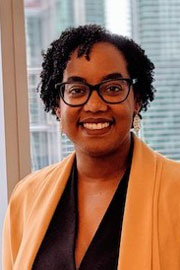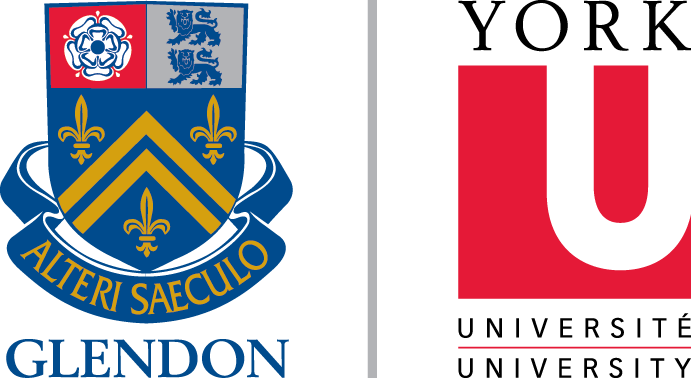
Melissa Romulus Lisanti, BA 2008, Political Science
When Mélissa Romulus Lisanti started at PwC, she brought one big guiding principle to her management role: Being personable and professional don’t have to be mutually exclusive things.
It’s a principle that paid off. Within three years, she was promoted to Director, Strategy and Operations within PwC Ventures, where she helps clients find innovative digital solutions to persistent problems.
“I have found immense joy and satisfaction in most of the projects that I have taken on so far,” says Mélissa. “I have fantastic colleagues from whom I can learn and leverage their experiences. So far I have worked in spaces where I have the opportunity to reimagine the possible and look at ways to make things easier, better, and faster.”
She credits her success to being a people-centric leader and points to her “world-class education” at Glendon, where she graduated with a BA in 2008. While earning her degree in Political Science and International Studies, she benefited from an atmosphere that valued diversity of thought, cultivated a deep curiosity about the world, and taught students how to think holistically about problems on multiple levels.
When asked to recall the best piece of advice she received while at school, she recounts a memorable interaction with former Minister of Defense David Collenette, who was Executive-in-Residence at Glendon during her studies.
“We had a perspective-changing conversation about the value of a liberal arts degree and how complementing it with experiential education would accelerate my growth. Put another way, experience is just as valuable as formal education.”
Working while studying helped her gain that experience. She worked at Glendon for ten years in the Budget Office, Office of Advancement, and the Principal’s Office before making a career change in 2016.
In her current role at PwC, Mélissa’s passionate about having similar conversations whether it’s to offer advice or to learn something new from more experienced colleagues, particularly as a participant in PwC’s Women in Leadership (WiL) program. “
“We did a deep dive into our personal values and practices,” she says about the WiL program, “We received tools to fine tune our leadership approaches and had several opportunities to hear from men and women from the Partnership.
Her advice to other women trying to make an impact within any organization? Be bold.
“Put your hand up and work outside of your comfort zone. I learned quickly that most women will wait until they are fully qualified for every bullet point on the job description whereas most males will be comfortable with a few and still ask for the opportunity. This must change.”
Indeed, today’s world is ripe with opportunity. Despite automation’s much-hyped takeover of routine tasks, uniquely human skills like creative problem solving, interpersonal communication, critical thinking, contextual-decision making, and more are becoming the new competitive advantage for companies around the world.
They are skills Mélissa’s liberal arts degree helped her build and sharpen, and she’s excited to see how they will shape the professional world over the next ten years.
“I’m most excited to see how the future of work and automation impact the workforce and markets,” she says. “And how teams and the nature of work will experience the change and growth that will come as a result!”
Neya Abdi, BA’16 International Studies
Published in February 2020


